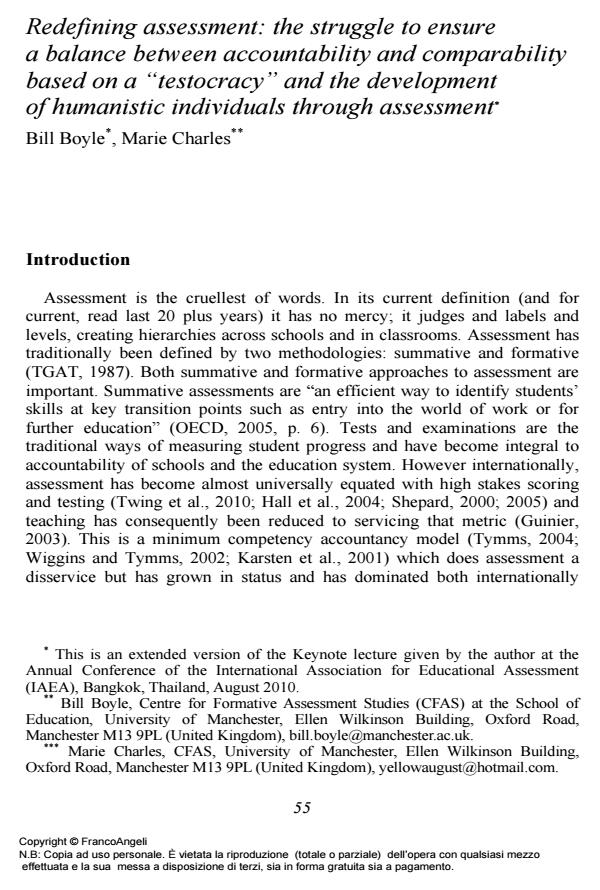Redefining assessment: the struggle to ensure a balance between accountability and comparability based on a "testocracy" and the development of humanistic individuals through assessment
Journal title CADMO
Author/s Bill Boyle, Marie Charles
Publishing Year 2011 Issue 2011/1
Language English Pages 11 P. 55-65 File size 249 KB
DOI 10.3280/CAD2011-001007
DOI is like a bar code for intellectual property: to have more infomation
click here
Below, you can see the article first page
If you want to buy this article in PDF format, you can do it, following the instructions to buy download credits

FrancoAngeli is member of Publishers International Linking Association, Inc (PILA), a not-for-profit association which run the CrossRef service enabling links to and from online scholarly content.
This paper reviews the paradigms of international assessment within the current accountability and comparability agenda and projects towards a model of assessment for the next generation. The conceptualisation of that model has as it locus the support of pupils’ humanistic development rather than the application of metric-based labels. The equating definition of assessment currently is, and has been for the last twenty years, testing and this has had resultant effects onpedagogy and learning through the prevailing culture of "a testocracy that claims to sort, evaluate and rank" (Guinier, 2003). The authors propose a move towards redefining assessment. The focus of the definition to be less on judgement and metric but on the superiority of the affective and conative domains in support of pupil learning (Allal & Ducrey, 2000). This aim offers some prospect for future generations being exposed to an "equity pedagogy" (Banks, 1993) based on a core integration of assessment with teaching and learning to address the complexity and humanistic needs of the learner.
Keywords: Formative assessment, testocracy, pedagogy, accountability, complexity, conation
Bill Boyle, Marie Charles, Redefining assessment: the struggle to ensure a balance between accountability and comparability based on a "testocracy" and the development of humanistic individuals through assessment in "CADMO" 1/2011, pp 55-65, DOI: 10.3280/CAD2011-001007